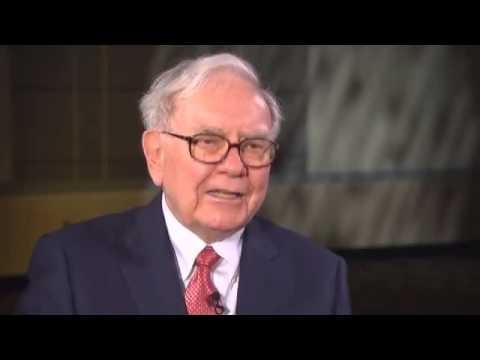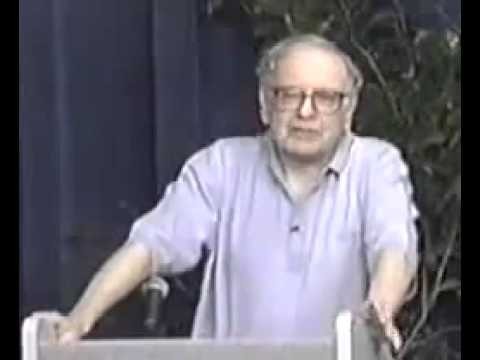David Sokol Buffett s Former RightHand Man
Post on: 29 Апрель, 2015 No Comment

Editor’s Note: David Sokol resigned from Berkshire Hathaway on March 31, 2011 .
Back in 1999, an investor group including Warren Buffett’s Berkshire Hathaway. helped Berkshire make its first foray into the energy business. The acquisition was of MidAmerican Energy Holdings Company, and the investor group included a gentleman by the name of David L. Sokol, MidAmerican’s CEO. In letters to shareholders, Buffett has since described Sokol as a brilliant and terrific manager who is the enormously talented builder and operator of MidAmerican Energy.
Sokol has frequently been mentioned as Warren Buffett’s Mr. Fix-It, and as a potential successor to Buffett when it’s time for The Oracle of Omaha to step down from the helm of Berkshire Hathaway. The admiration of one the world’s best businessmen is certainly notable, so it is worth digging into what has made Mr. Sokol such a resounding success over the years.
Sokol laid out many of the details of his management philosophy in his book, Pleased But Not Satisfied (2008). The title refers to a mindset of continuous and incremental improvements on both a personal and professional level. As such, it contains many insights that individuals can apply to their own lives and professions. Like Sokol himself, his philosophy is very detailed and covers major and minor points, including carrying out employee evaluations, six principles to adhere to when running a business, goal setting, budgeting, individual improvement and how to balance personal and business lives. The lessons provide valuable business insight and also give clues as to how Berkshire Hathaway might be run after Buffett hands over the reins for good. (Learn how to maintain your high moral standards in business, check out Standards And Ethics For Financial Professionals .)
Background on David Sokol
Sokol has earned the status as Buffett’s right-hand man since the MidAmerican Energy acquisition, after Sokol built MidAmerican into the large utility it is today. In 1991, the company was just a geothermal business known as CalEnergy, with an estimated $28 million in sales. Sokol, through over 20 years of acquisitions, eventually created MidAmerican Energy Holdings Company, with over $7 billion in revenue. Since the acquisition, Sokol has been called in to turnaround other Berkshire companies, including roofing company Johns Manville, executive jet firm NetJets, and he has also been asked to look at other investments such as battery and car firm BYD in China and the rescue package for Constellation Energy Group.
Sokol was mentioned as a potential successor to Buffett at Berkshire Hathaway in 2010 and 2011, but his personality differs sharply from Buffett. Sokol is known to have a direct, to-the-point management style and takes a systematic, candid and objective approach to running businesses. His engineering background is illustrative of the constant measurement and attention to detail he applies to business management. (They don’t call him The Oracle for nothing. Learn how Buffett comes up with his winning picks, in Think Like Warren Buffett .)
Management Philosophy
Sokol’s management philosophy can most visibly be observed through the advice he provides in regard to running a company and adopting a set of enduring principles. He has developed a set of core principles for running MidAmerican energy and has boiled them down to what he refers to as six business principles. The six commandments are offered in no particular order as each is seen as equally important. As such, they are simply detailed in alphabetical order.
Commitment to the Customer
The first consists of customer commitment. Sokol has used the perspective of MidAmerican Energy, which, as a regulated utility, has a captive customer audience that is obligated to uses its electricity and pay for it on a monthly basis no matter what happens to their jobs or income levels. In many cases, monopolies start to ignore customer commitment as customers have no choice but to use their products or services. In addition to utilities, telephone firms and cable companies come to mind and are notorious for being difficult to deal with and neglectful of serving the customer. Sokol refers to the opportunity (as opposed to the obligation) to serve customers by providing the highest-quality service in a fairly priced and safe manner. (Learn more in A History Of U.S. Monopolies .)
Employee Commitment and Transparency
To Sokol, employee commitment consists of a two-way street where employers and employees communicate with each other honestly and in a forthright manner. He details that employees can expect competitive salaries, training, support and a safe work environment, which is important for utility operators and other labor-intensive jobs. In addition, management has an obligation to run its business properly. Cases where this did not occur include the auto industry where employees were laid off – not because of an event, but due to many years of questionable management decisions. And finally, candor is important and providing immediate performance feedback, as opposed to year-end reviews of dubious value to either managers or workers. Sokol believes in constant feedback and continuously ranks his managers from best to worst.
Firms that possess financial strength serve both the company and employees well. Returning again to the auto industry example, Sokol’s advice runs core to Berkshire Hathaway’s philosophy in that it is focused on producing a product and service that customers demand and delivering it in an efficient and low-cost manner to stay sufficiently profitable. Staying vigilant on the cost front can be a competitive advantage that is exploited to beat the competition and ensure operating success regardless of a boom or downturn in the business cycle. (Buying value stocks that are moving higher helps investors steer clear of value traps, see Value Investing + Relative Strength = Higher Returns .)
Employer and Employee Integrity
Sokol frequently cites Buffett when referring to integrity, which boils down to finding employees that possess integrity, intellect and passion for their jobs. Integrity is very necessary, as Enron and Tyco had business leaders with high intellect and passion for growing their firms but lacked integrity to do it in an honest and ethical manner. Sokol states that integrity is doing the right thing when nobody is looking, and Buffett has suggested imagining that anything an individual does could show up on the front page of his or her local newspaper as motivation to maintain high integrity. (Enron is a classic example of greed gone wrong — and how investors were led astray. Read Enron’s Collapse: The Fall Of A Wall Street Darling .)

Environmental respect is closely related to integrity, and also customer commitment when considering that society as a whole can be considered the end customer for many companies. Again, a regulated utility is a prime example given the need to generate and distribute electricity and natural gas in an environmentally friendly manner.
Minimizing Mistakes
In Sokol’s mind, operational excellence consists of paying attention to detail and minimizing the making of mistakes or other small problems that could turn into big issues. For example, some oil companies have been cited numerous times for a lack of attention to seemingly small manners, and that have resulted in oil pipeline leaks or oil well explosions. In many cases, these damaging events might have been less severe, or could even been prevented with attention to seemingly minor maintenance activities. Because of a lack of attention to detail, the last oil company might experience huge declines in its reputation and profits. Openness and candidness are other key ingredients to excellence, according to Sokol. In his words, the more uncomfortable the situation, the more valuable a candid conversation becomes.
Personal Principles
Successfully managing other individuals and a company would not be possible without first committing oneself to individual improvement. Sokol lists four traits he sees as predictive of successful corporate managers. These include giving a 110% commitment to all activities, maintaining professionalism, trusting one’s instincts and accepting accountability for one’s actions. He cites individuals including Einstein and Tiger Woods, who are gifted with great natural talents in their professions, but have coupled this with hard work to become truly exceptional in their fields.
Sokol details that it is amazing how much luckier you will become if you approach every day well-prepared and willing to outwork the competition. Basic blocking and tackling is a cornerstone of this philosophy and includes showing up on time for meetings (being late shows disrespect as it demonstrates your time is more important than others at the meeting), treating people with respect at all times, and being honest and again candid in communicating with others.
Balancing business and personal life is a final component to success, according to Sokol. Like many of his fellow Berkshire business leaders, the business life remains front and center, but he does provide suggestions on how to still balance in family life. Again, core principles used in business life are cited and include being candid with your spouse and children, and constantly working out compromises.
The Bottom Line
Sokol’s overriding advice is that one must get the basics right and the success will follow. Sokol contrasts sharply with Buffett’s management style, but despite this, he was long considered a candidate as Buffett’s successor.














